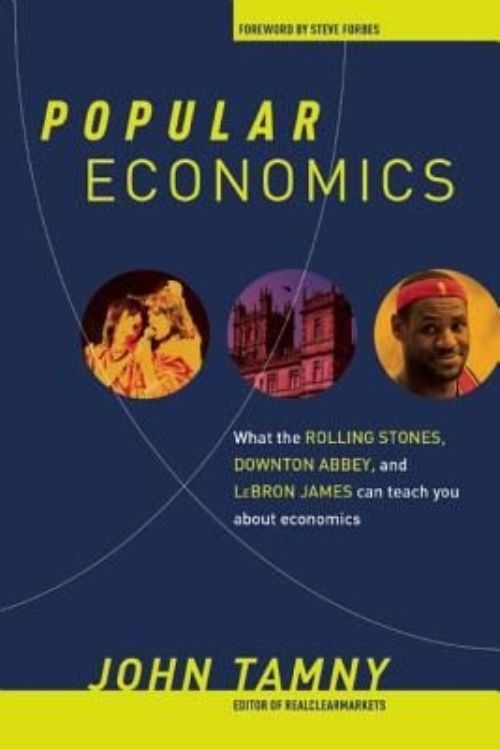
A former money manager, John Tamny writes and edits for Forbes and RealClearMarkets.com while serving as senior economic adviser to Toreador Research & Trading.
Wealth management and writing aren’t alike. Was there an event that provoked your career switch?
While working wealth management, CNBC was on the various televisions on the floor that I worked in Goldman Sachs’s equities division. The frequent comment from economists was that too much economic growth would cause inflation; as in too many people prospering had a downside. What a laugh. I’d grown up in the 1970s and knew what inflation was. It’s a devalued currency. Economic growth itself is the biggest enemy of rising prices. I started writing stuff out quietly for clients, and was soon enough hooked. I found what I wanted to do.
Between your Forbes and Real Clear Markets articles, you write often. In the world of political economy what makes for a compelling read?
What makes a read interesting is something new. That’s what I tell people who submit to me. The reasoning has to be good, but I also hope it’s something new. A top commentator once said to me something along the lines of, “I read your posts thinking I’m going to disagree, and then I see what you mean.” I want writers to surprise me.
In Popular Economics you simplify the subject using examples from sports, culture, and business. Why did you bring this book to life?
I did because economics is great fun. Or it should be. But actual economists who likely don’t understand their subject have hidden their misunderstanding with graphs, formulas and percentages. How awful. Economics is EASY, and it can be easily explained by the world around us. The purpose of Popular Economics is to show people that if they can observe the beautiful world of sports, movies, music and famous businesses around them, then they’ll know all they’ll ever need to know about economics.

Many economic principles, as you say, are habitually misunderstood. Which are the most egregious errors?
The idea that growth causes inflation is remarkably obtuse. What we see throughout history is that when economies are growing, investment is, by definition. That’s the source of falling prices.
Economists believe recessions need to be fought, but in truth recessions are an economy’s way of cleansing itself of what’s not working. To fight recessions is to fight recoveries.
Economists believe government spending drives growth. How silly. Governments can only waste what we’ve first produced. Government spending is by its very name an economic depressant.
Government does a lot – including, many think, much that which it should not. Financial matters (e.g. securities, monetary instruments, entire industries) tend to be heavily regulated. Is there a role for a central authority?
No. With regulations we’re asking the impossible. We’re asking regulators to sense trouble well ahead of the trouble. Ok, but if they were capable of something the best investors in the world only are very occasionally, they’d be earning billions as investors. Regulation fails by its very name. It can’t work, but it’s very expensive.
Do free-enterprise supporters and Donald Trump make friends or foes?
It’s a mix. Trump is maybe good on taxes and regulation, but his views in favor of tariffs and monetary devaluation are horrifying. Trump could be a pro-growth president, but only if he runs from many of his ideas. Let’s hope he does. If he pursues devaluation and protectionism, he’ll fail.

Biography
- JohnTamny.com personal website
- Forbes op-ed pieces
- Real Clear Markets articles
- Mises Institute profile
- Twitter feed @johntamny
Books
Mr. Tamny is a writer, editor, and speaker, specializing in economics.
Next, discover The Most Interesting Economist in the World, Lawrence Reed.
You might also like our interview with Vernon Smith, a Nobel Prize winner and pioneer of experimental economics.